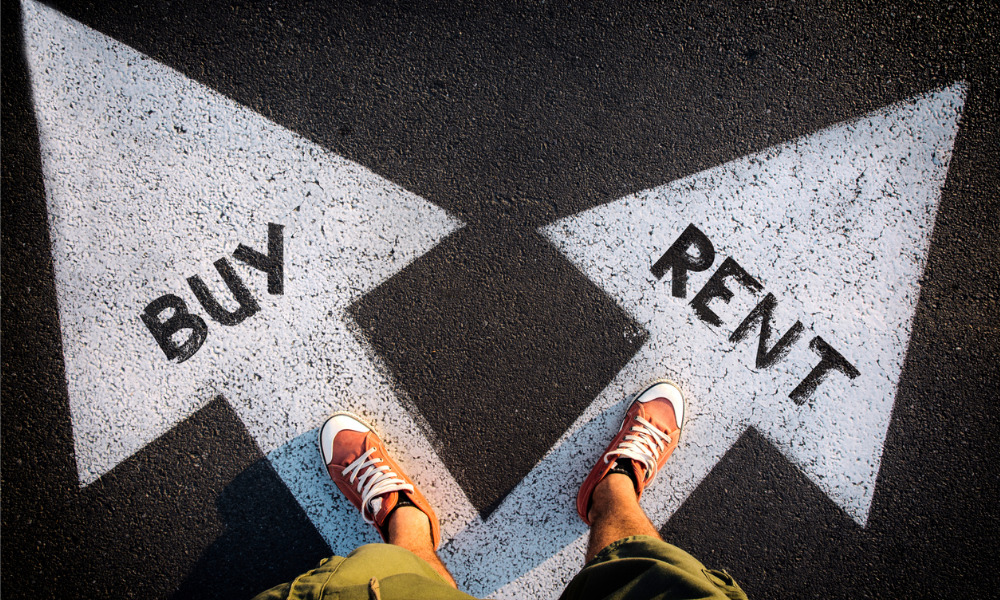Saving for deposit still a challenge, expert says

Renting is cheaper than buying in Australia’s most populous states. However, owning a home is the more affordable option in other areas, according to new data from CoreLogic.
In 518 suburbs across the country, the cost of mortgage repayments is lower than the average rent price despite climbing interest rates – in some cases, by as much as $927 per month, according to a report by The Australian Financial Review.
Queensland, Western Australia and the Northern Territory have the highest share of suburbs where buying is more affordable than renting, while New South Wales, Victoria and the Australian Capital Territory have only a few suburbs where buying is cheaper.
Houses are cheaper to buy than rent in 95% of NT suburbs and nearly half of the suburbs in WA, according to CoreLogic data. Buying is also more affordable in more than one in five suburbs in Tasmania and in one in six SA suburbs.
However, buying is cheaper in just 6% of NSW suburbs, 4.4% of Victoria suburbs, and only 1.4% of ACT suburbs, AFR reported.
Eliza Owen, head of research at CoreLogic, said that aspiring homeowners could be lured to the market by falling house prices and spiking rents.
“I think buying will look increasingly attractive to some cohorts in the short term, as price falls are expected to continue in line with rising interest rates, and there’s not much sign of a slowdown in rents, which could trigger first-home buyer decisions,” Owen told AFR. “A fall in home prices will improve one aspect of affordability, which is the upfront transaction costs – namely, the deposit. As prices fall, your savings could make up a higher portion of a property value, allowing for a larger deposit, or potentially more homes falling within reach.”
However, would-be home buyers in some areas might still find it difficult to save for a deposit, Owen said.
“It seems that some lower socioeconomic, rental-heavy areas could be the most challenging for first-home buyers of any age to get into homeownership, such as pockets of Ipswich, North Adelaide and South Perth, because rental values are particularly high relative to income,” she told AFR.
“For some renters, rising housing costs may actually serve as a trigger to get into homeownership, but rising rents does make the accumulation of a deposit more difficult,” Owen said. “Coupled with high inflation expectations and the rising cost of non-discretionary household goods such as food and groceries, it would be a relatively difficult period to get a deposit together.”



